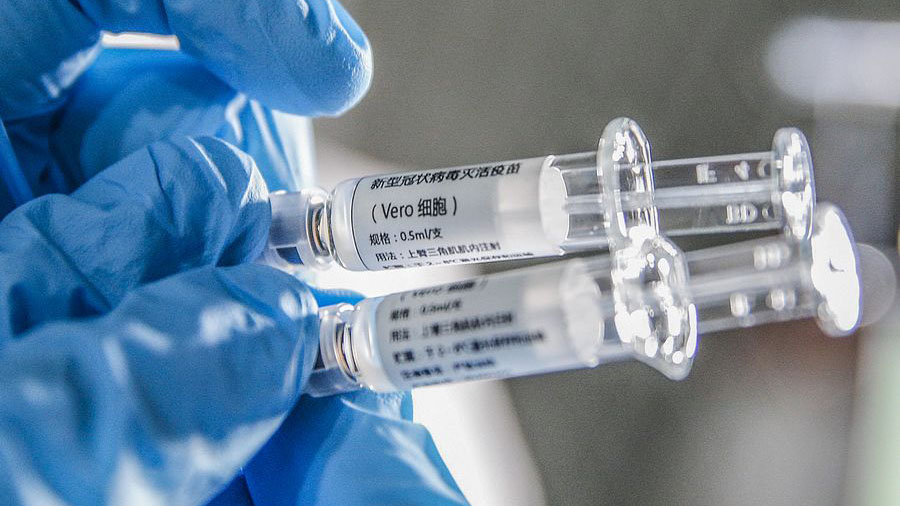01:57

Chinese company Sinopharm has announced its vaccine as 79 percent efficacious. The vaccine has met WHO standards and was approved by the Chinese regulators. New vaccine options are welcomed since the global COVID-19 cases have surged past 82,000,000 in the past few days, with only China, New Zealand, and a few other nations controlling the spread.
Wu Zunyou, Chief Epidemiologist at the China Center for Disease Control, predicts, "The pandemic will peak this coming January and February." He says that while vaccines are a welcome beacon of hope, they will not turn the tide on the global pandemic in the short-term. CGTN Host Tian Wei speaks to Wu about how to weather the pandemic this winter.
Wu suggests that winter weather may incubate the virus, "During the winter, people stay at home where the ventilation is not good. The epidemic may see resurgence."
Wu suggests that vaccines cannot solve the pandemic overnight. He says: "Vaccines take time. Each inoculated individual needs to produce an antibody. It will take time to build up herd immunity." Therefore this winter season will still depend on public health measures like mask-wearing, hand-washing, and social-distancing to control the epidemic. He adds that if everyone were to follow such prevention measures, the epidemic could be stopped without vaccines.
Sinopharm's vaccine joins a few other competitors with varying degrees of efficacy. The Pfizer vaccine shows a 95 percent efficacy, while the AstraZeneca vaccine shows a 70 percent efficacy. Wu dispels concerns about choosing between the many vaccine options. He says, "All the available vaccines produce sufficient antibodies. Vaccines that have at least a 70 percent efficacy rate are good enough to control the epidemic in a population."
China's relative success in containing the pandemic as well as the global demand for vaccines both mean that China residents will have to be patient for the vaccine rollout. Wu says: "China cannot depend on vaccines for this winter and spring. There are not enough vaccines for everybody. Vaccines are prioritized for high-risk groups, like people who work in the cold-chain industry or in the airport." Indeed, China's resolute eradication of the virus has resulted in only sporadic local transmissions from imported cases and cold-chain contamination. China's practice has so far performed better than those of its neighbors South Korea and Japan that rely mostly on testing and tracing. The current practices of South Korea and Japan are successful at controlling the virus relative to the West but have failed in eradicating all cases.
Indeed, Japan still has over 33,000 active cases. China has emerged from the pandemic as one of the few economies that have reopened. Wu still says that caution must be exercised for the Spring Festival travel rush. He warns: "Pay attention to news. Don't travel anywhere with any reported cases."
After 12 months of the pandemic dominating headlines and disrupting lives, COVID fatigue is palpable. But Wu is optimistic that after the pandemic peaks this winter, a vaccine-buoyed spring lies on the horizon.
World Insight with Tian Wei is an international platform for debate and intelligent discussion. It is the meeting point of both the highly influential and rising voices, facilitated by host Tian Wei. It provides nutrition to form your own thoughts and ideas through a 45-minute live debate and interviews.
Schedule: Monday-Saturday
Time (GMT): 1415, 2015
(If you want to contribute and have specific expertise, please contact us at opinions@cgtn.com.)

